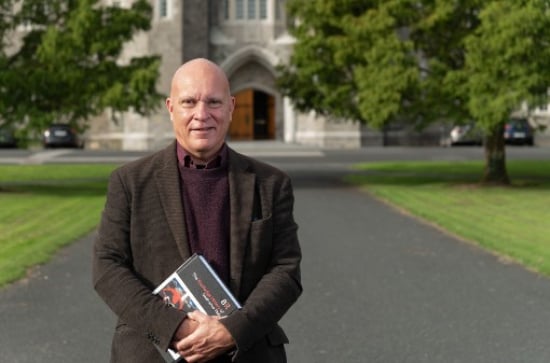Qualification : MASTER OF ARTS DEGREE
Award Type and NFQ level : TAUGHT MASTERS (9)
CAO/MU Apply code : MHP58
CAO Points :
Closing Date : 30 June 2025
This MA programme provides an in-depth introduction into the disciplines of military history and strategic studies. It aims to immerse students in the study of conflict from the late 1700s to the present-day, providing them with an overview of the development of modern warfare and also the skills necessary to analyse modern conflicts.
The programme is taught through a series of modules including Modern Warfare I, Modern Warfare II and Strategic & Security Studies. These modules provide an introduction to the key concepts, theories and debates in this field. No specialist knowledge is required and this MA programme will appeal to anyone interested in history, international relations, security studies and war studies.
The programme has attracted international students and significant links have been forged with military academies in the USA, the UK and the Netherlands.
Assessment is through a mix of written assignments and in-class presentations. Students also develop a 20,000 word thesis on a subject of their choice. There is much emphasis on independent study.
The normal admission requirement is for at least a Second Class Honours degree in history or other related disciplines within the Arts, Humanities or Social Sciences. Candidates may be asked to attend an interview.
Individuals who do not meet the specified criteria may be accepted on a case-by-case basis where they are able to demonstrate equivalent relevant experience. Such candidates may be asked to provide an example of their written work and to attend an interview.
Applicants must have a recognised primary degree which is considered equivalent to Irish university primary degree level.
Minimum English language requirements:
Applicants for whom English is not their first language are required to demonstrate their proficiency in English in order to benefit fully from their course of study. For information about English language tests accepted and required scores, please see here. The requirements specified are applicable for both EU and International applicants.
Maynooth University's TOEFL code is 8850

Academic

Academic

Academic

Academic

Academic

Academic
The programme will be delivered through a variety of lectures, seminars and tutorials. Students must take three 10 x credit core courses (HY675 Modern Warfare I, HY676 Modern Warfare II and HY692 Strategic & Security Studies). They also take two 10 x credit modules chosen from a list of electives available that year. (Total 50 Credits).
A total of 40 credits are awarded for thesis preparation (Semester 1, HY668, 10 credits) and thesis completion (HY679, 30 credits).
Online application only. To make an application please click here.
To apply for your chosen postgraduate study at Maynooth University, please ensure you have the following documents to make an application:
- Evidence of your primary degree
- Academic transcripts
- A copy of your passport
- A personal statement
Applicants for whom English is not their first language are required to demonstrate their proficiency in English in order to benefit fully from their course of study. For information about English language tests accepted and required scores, please see here. The requirements specified are applicable for both EU and International applicants
















